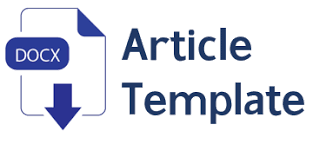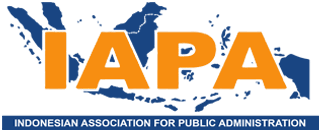BUSINESS CORRESPONDENCE IN INTERNATIONAL TRADE
HOW DOES IT IMPACT FREIGHT FORWARDERS' PERFORMANCE?
DOI:
https://doi.org/10.30997/jsh.v13i2.6457Keywords:
business correspondence, e-mail, export import, freight forwardingAbstract
Business correspondence in the form of e-mail has an important role for freight forwarders to support their duties as intermediaries between exporters and importers. Mastering the style, format, and important parts of an e-mail is not an easy job, especially if it is written in English so that it becomes a challenge for freight forwarders. This study tries to investigate the obstacles and challenges faced by freight forwarding companies in Indonesia in conducting business correspondence in English, as well as analyze the role of business correspondence towards working performance of freight forwarders. This study involved five freight forwarding companies located in Jakarta. Data were collected through literature study and interviews with staff who handle correspondence. The results show that the style of e-mail communication made by freight forwarding companies tends to be informal with a lot of use of abbreviations and concise forms of e-mail. In addition, there are several obstacles in conducting correspondence, namely the lack of knowledge about the components that make up an e-mail, lack of English language skills, lack of knowledge about e-mail writing style, and misinterpretation. The obstacles impacted export-import activities in the form of delays in transaction processing, customer complaints and financial losses. Employees who deal with correspondence should be given intensive business correspondence training in order to understand in detail the structure, writing style, and patterns of business correspondence commonly used in the international business world. In addition, it is necessary to improve English language skills for the employees by providing English language training, especially related to writing and grammar.
References
Acharya, R. N., Kagan, A., & Zimmerman, T. (2010). Influence of email marketing on real estate agent performance. Journal of Real Estate Literature, 18(2).
Ahmad, N. H., & Firmansyah, E. A. (2018). Suatu Tinjauan Atas Prosedur Penerimaan Barang Impor Dari Pelabuhan Muat Dengan Status Peti Kemas Full Container Load (Fcl). JMBI UNSRAT (Jurnal Ilmiah Manajemen Bisnis Dan Inovasi Universitas Sam Ratulangi)., 5(1), 38–48. https://doi.org/10.35794/jmbi.v5i1.19148
Al qudsy, I. (2017). THE STUDY OF CORRESPONDENCE OF EXPORT – IMPORTFURNITURE BUSSINES IN JEPARA. Muria Kudus University.
Arikunto, S. (2010). Prosedur Penelitian: Suatu Pendekatan Praktik. Rineka Cipta.
Ayuningtyas, A. D., Setiawan, W., & Damayanti, T. (2012). Hubungan Kredibilitas Native Speaker Pada Program Dynamic Speaking Dengan Sikap Siswa Pada Bahasa Inggris. EJurnal Mahasiswa Universitas Padjajaran, 1(1), 1–10.
Fatima, S. (2017). Business English and Business Correspondence: How to Structure an English Business Letter. International Journal of Science and Research (IJSR), 6(11), 1348–1351. https://www.ijsr.net/archive/v6i11/ART20178148.pdf
Huang, S. T., Bulut, E., & Duru, O. (2019). Service quality evaluation of international freight forwarders: an empirical research in East Asia. Journal of Shipping and Trade, 4(1). https://doi.org/10.1186/s41072-019-0053-6
Jamalzadeh, M., Behravan, N., & Masoudi, R. (2012). An empirical study of email based advertisement and its influence on consumers’ attitude. International Review of Management and Marketing, 2(3), 130–138.
Jones, L., & Alexander, R. (2011). New International Business English (2nd Editio). Cambridge University Press.
Mohajan, & Haradhan. (2018). Qualitative Research Methodology in Social Sciences and Related Subjects. Journal of Economic Development, Environment and People, 7(1), 23–48.
Nyzhnikova, L. V. (2011). Business Correspondence and Office Work in English. National University.
Paniya. (2013). Kemampuan Korespondensi Ekspor-Impor Berbahasa Inggris dengan ‘ Content-Based Orientation ’ bagi Mahasiswa Program D3 Kelas Akselerasi Program Studi Administrasi Bisnis. Ragam Jurnal Pengembangan Humaniora, 13(2), 101–110.
Putria, N. E. (2014). Pengaruh Pemanfaatan Layanan E-Mail Billing Tagihan Terhadap Citra PT Pln Batam. CBIS Journal, 2(2), 67–90.
Quaresma, R. F. C., Silva, S. P. R. da, & Marreiros, C. G. (2013). E-Mail Usage Practices In Organizational Context: A Study With Portuguese Workers. Journal of Information Systems and Technology Management, 10(1), 5–20. https://doi.org/10.4301/s1807-17752013000100001
Rachmania, I. M., & Mirahayuni, N. K. (2009). A Study of Features of Indonesian Business Correspondence E-Mails. 09(02), 11–21.
Sani, A. (2018). FUNGSI KONTRAK DAGANG DALAM TRANSAKSI EKSPOR IMPOR. Ekonomi Bisnis, 24(1). https://doi.org/DOI: https://doi.org/10.33592/jeb.v24i1.201
Sundari, M. (2018). Peran Perusahaan Logistik Dalam Menunjang Aktivitas Pengiriman Barang. Journal of Business Studies, 3(2), 1–16. http://journal.uta45jakarta.ac.id/index.php/jbsuta
Supardi, E., & Nurjanah. (2019). Analisis Preferensi Konsumen Terhadap Freight Forwarding Freight Forwarding Liability Insurance. Competitive, 14(2), 45–51.
Sviatiuk, Y. V. (2015). Business Correspondence Style and Format. International Scientific Journal Theoretical & Applied Science, 29(09), 83–88. https://doi.org/http://dx.doi.org/10.15863/TAS.2015.09.29.18
Wati, A. W. (2018). Peranan Freight Forwarder Dalam Menunjang Aktivitas Ekspor Antar Negara Melalui Jalur Laut Dan Udara. Journal Ilmiah Mahasiswa Universitas Surabaya, 7(1), 20. http://journal.ubaya.ac.id/index.php/jimus/article/view/2443/1927
Xu, B. (2012). An analysis of English business letters from the perspective of interpersonal function. English Language Teaching, 5(7), 75–80. https://doi.org/10.5539/elt.v5n7p75
Yu, Z., & Fu, Y. (2014). A Study on the Characteristics and Writing Principles of Business Correspondence. Proceedings of the International Conference on Education, Language, Art and Intercultural Communication, 3(Icelaic), 369–372. https://doi.org/10.2991/icelaic-14.2014.93
Zhaohui, W., & Liping, J. (2017). A Case Study of Business Correspondence English Curriculum Standard Development under the Guidance of ESP Theories. American Research Journal of English and Literature, I, 7–9. https://doi.org/10.21694/2378-9026.16011
Downloads
Published
How to Cite
Issue
Section
License
Copyright (c) 2022 Jurnal Sosial Humaniora

This work is licensed under a Creative Commons Attribution-ShareAlike 4.0 International License.
Authors submitting manuscripts must understand and agree to copyright the manuscript of the article was transferred to OJS Djuanda University. All rights reserved. The copyright release statement for the Journal of Social Humanities is set out in the Agreement Transfer of Copyright. This work is licensed under Creative Commons Attribution-ShareAlike (CC BY-SA) version 4.0 where Author and Readers can copy and redistribute material in any media or format , as well as mixing, modifying and building materials for any purpose, but they must provide appropriate credit (citing articles or content), provides a link to the license, and indicates when changes have been made. If you mix, modify, or develop, the materials you have to distribute your contributions are under the same license as the originals.
















